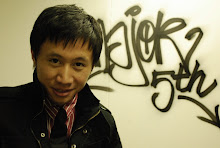I remember when I was ten, going on 5th grade, I moved in with my older sister and brother-in-law. My mom had reason to believe that the enivronment I lived in had a negative influence on my upbringing. So my mom had me move in with my older sister in her new house in the suburbs of Apple Valley, MN. There, it was intended for me to have resources and schooling not accessable to me in the Twin Cities. Apple Valley is where I spent a four year interval of my life, from 5th grade to 8th grade, which are the most odd years.
I remember the atmosphere of school those years. There were the 'pretty' people, 'not so pretty' people, and the middle people. Even though no one said it, it was plainly obvious. It was the way everyone organized themselves in tables at lunch, the way everyone talked to each other, what they ate, what they wore, what they did after school. The 'pretty' people only mingled/"dated" each other, and the same with the other classes, and any intermingling was weird or shocking. I never really 'hung out' with anyone after school. I was 'friends,' or rather, acquaintences with different people of different 'class.' It was weird coming from very diverse schools going into homogenous schools. In this environment, I felt out of place and insecure. I never really fitted in. And on top of that, I was not living with the 'nuclear family' at the time, which created a sense of space and isolation from my peers.
I remember when people would ask me about who I was living with at home, and I would have to go through a long explaination about my mom and older sister agreeing on bringing me to Appley Valley. I remember going to the grocery store with my older sister and her husband, and the way they felt somewhat embarassed having me around because it looked as if they were my very young biological parents. I remember how weird it felt at times when I brought my brother-in-law to conferences, when everyone brought their parents, and some of the discussions involved father-child or mother-child relations. I remember the father-son events, or mother-son events, in which I never attended. Even though I knew I was welcomed to attend, it still was socially awkward among my peers bringing my older sister or brother-in-law to these events.
My intention is not to complain or bicker, in fact, I had a lot of good times in my years in Apple Valley. The point of my blog is to question the nuclear family, and explore how the homogenizing of the 'nuclear family' can create isolation among individuals.
Jane Juffer discusses in the chapter The Corporate University, in her book Single Mother, of how the different aspects of different family structures (specifically single mothers/parents) can create isolation and immobility. Jane Juffer uses the example of how she cannot attend many social events because she is caring for a child at home, alone. Although it sounds like bickering, it is more so the reality of the situation: "What I am trying to describe, perhaps ineptly, is the feeling of isolation that derives as much from a general work climate as it does from a specific policy initiatives, or lack of policies. As most of the reports on academia and parenting studies argue, what needs to change in order for mothers to feel supported is not just the policies but also the culture, one in which admitting one's need seems like an admission that work will not get done. I believe there's a connection: that working with the university to adopt more family-friendly policies not based on the nuclear family will lead to a more communal environment" (95-96). It is important not to create a cookie cutter that shapes the same needs for everyone. In order to obtain true equality, we have to understand what is accessable for each person (which is complicated). The lack of non-nuclear-family-friendly policies and resources handicaps single parents from the same opportunities married couples or single people get. Even within the single parent branch, there is a difference in accessability among different classes of single mothers (poor, middle-class, rich).
Subscribe to:
Post Comments (Atom)

No comments:
Post a Comment